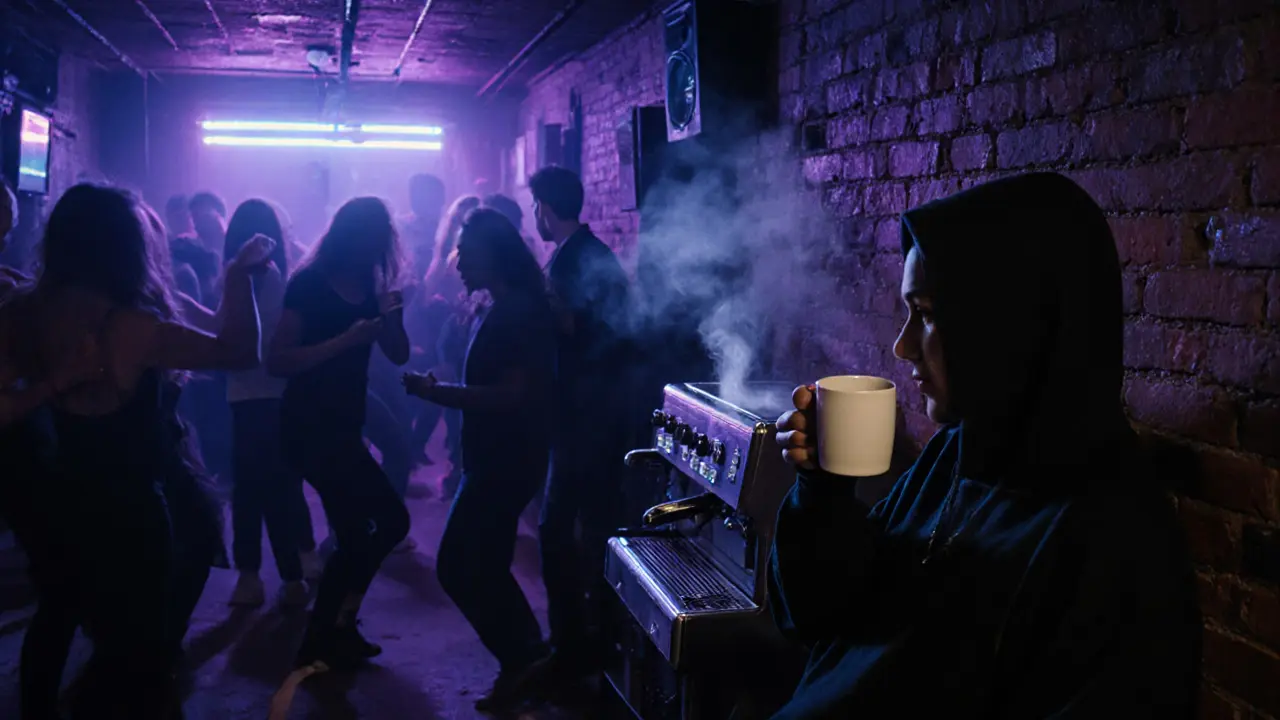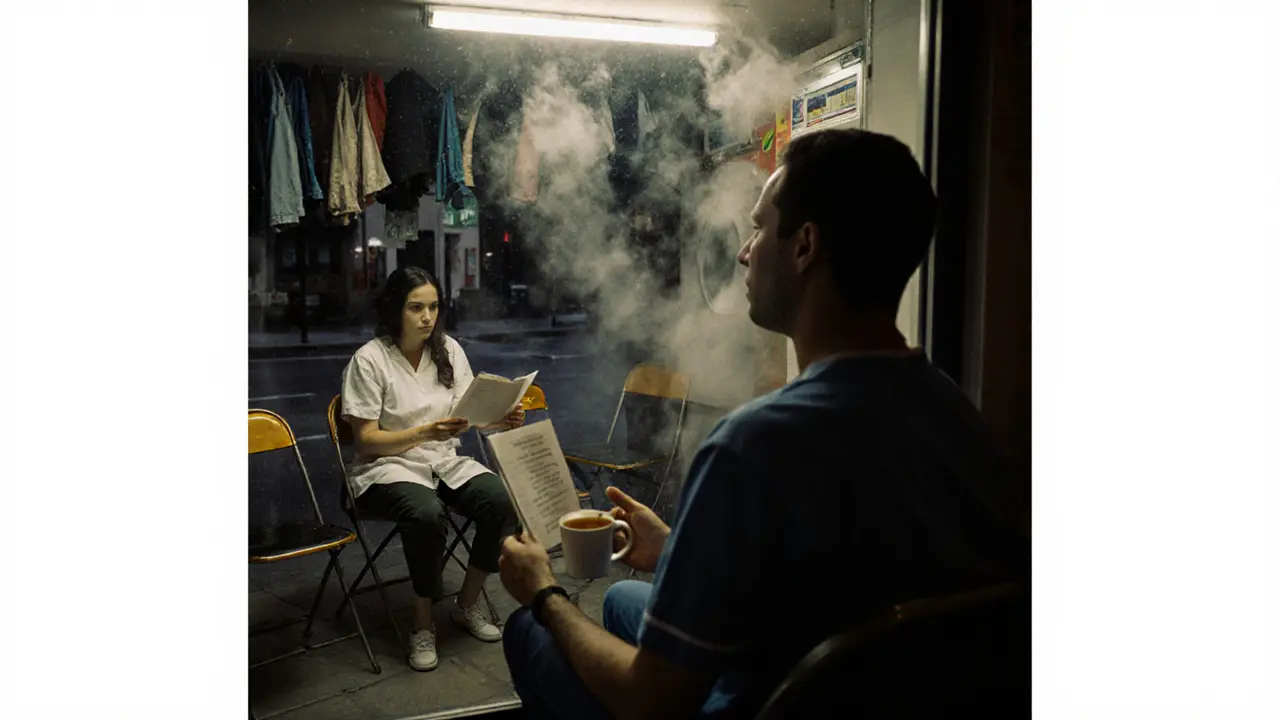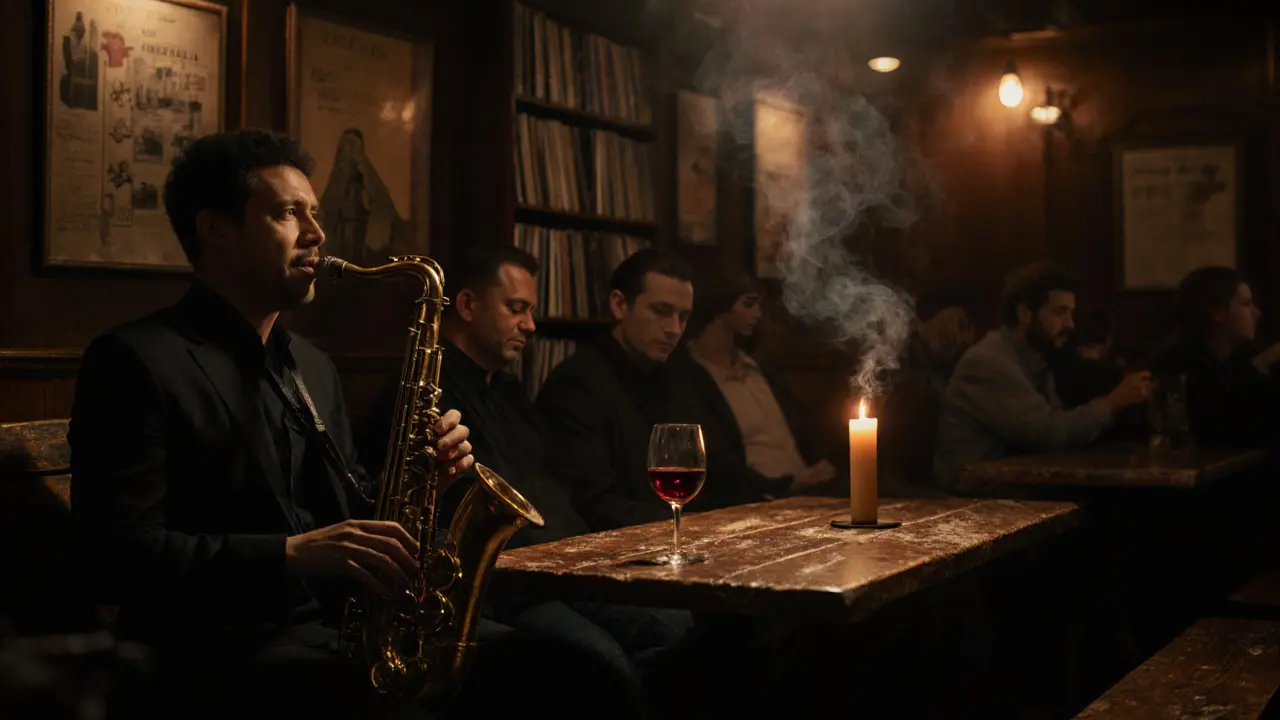Paris doesn’t sleep-it just changes outfits.
Most visitors think of Paris as cafés, museums, and croissants. But when the sun sets, the city sheds its postcard image and reveals a wilder, smarter, more alive version of itself. This isn’t just about drinking and dancing. It’s about jazz hidden in alleyways, midnight book readings in 19th-century libraries, wine bars where locals debate philosophy over a glass of natural Pinot Noir, and rooftop terraces where the Eiffel Tower sparkles like a diamond necklace every hour on the hour.
If you’re looking for the real Paris after dark, skip the tourist traps. You don’t need to queue for a bottle service club in Le Marais. You need to find the place where the bartender knows your name by the third visit, where the music isn’t played on a playlist but lives in the room, and where the night feels like it was made just for you.
Where the locals go: Beyond the clichés
Le Marais gets all the attention, but the heart of Parisian nightlife beats in quieter corners. In the 11th arrondissement, Bar du Marché is a tiny, no-sign, no-menu spot tucked behind a fruit stand. You order a glass of biodynamic wine by the bottle, sit on a wooden stool, and talk to the owner-who once ran a vineyard in the Loire Valley-about why he switched from selling grapes to selling stories.
Down in Belleville, Le Très Petit Club is a basement venue that books only underground French hip-hop and experimental electronic acts. No bouncers. No dress code. Just a speaker system that makes your chest vibrate and a crowd that’s there for the sound, not the Instagram shot. It’s open until 5 a.m. on weekends, and the only thing more reliable than the music is the espresso machine that kicks on at 3 a.m. for the night owls who don’t want to go home yet.
These aren’t hidden secrets. They’re just places that don’t advertise. You find them by walking, asking, or following the sound of live saxophone drifting from an open door.
Music that moves the city
Paris has one of the most vibrant live music scenes in Europe, and it doesn’t all happen in big concert halls. On a Tuesday night, head to La Cigale in Pigalle. It’s not flashy, but it’s where French indie bands test new albums before they blow up. You might see a future star like L’Impératrice or Pomme playing to a crowd of 200 people who already know every lyric.
For jazz lovers, Le Caveau de la Huchette in the Latin Quarter has been operating since 1947. The room is cramped, the lighting is dim, and the musicians don’t stop playing until the last person leaves. It’s not a show-it’s a ritual. You sit on a bench, sip a cheap red, and let the music pull you into a different century. The saxophone player? He’s been there for 37 years. He doesn’t need to introduce himself. You know who he is by the way he bends a note.
And then there’s the secret: Le 1000 Temps in the 13th arrondissement. It’s a jazz club disguised as a Chinese restaurant. The menu says dumplings, but the real draw is the piano trio that plays only at midnight. You have to know the password. Ask for “the blue moon” at the door. They’ll let you in.
Wine, not cocktails
Parisians don’t drink cocktails. Not really. They drink wine. And not the kind you find in supermarkets. They drink vin naturel-natural wine-made with no added sulfites, no commercial yeasts, no manipulation. It’s cloudy, it’s weird, and it tastes like the soil it came from.
Le Baron Rouge in the 10th arrondissement is a tiny wine bar with 80 bottles on the wall and zero labels. The staff doesn’t tell you what’s good. They ask what you ate for dinner. If you say cheese, they pour you a Gamay from the Loire. If you say duck, they reach for a Syrah from the Rhône. No tasting notes. No prices listed. You pay what you feel it’s worth.
For something more structured, try Le Verre Volé in the 11th. It’s a wine shop by day and a bar by night. The owner, Marie, used to be a sommelier at a Michelin-starred restaurant. She quit because she hated how wine was treated like a luxury item. Now she serves it in mason jars, with olives and crusty bread, and talks to you like you’re a friend who just walked in.

Books, poetry, and late-night thoughts
Paris has always been a city of writers. And even now, in 2025, the night still belongs to the quiet thinkers. Shakespeare and Company stays open until midnight, but the real magic happens after closing. Every Thursday, a small group gathers in the back room for poetry readings. No tickets. No sign-up. Just a chair, a candle, and someone reading their own words into the silence.
At La Librairie des Musées in the 6th, you can buy a book, sit by the fireplace, and read until 2 a.m. The staff doesn’t rush you. They bring you tea without asking. It’s the only place in the city where silence feels like company.
And then there’s Les Éditions de l’Onde, a tiny press that publishes only poetry written by night workers-cleaners, nurses, taxi drivers. Every Friday, they host a reading at a 24-hour laundromat in Montmartre. You sit on folding chairs while clothes tumble in the background, and someone reads a poem about working the night shift while the city sleeps.
The Eiffel Tower sparkles-but the real magic is elsewhere
Yes, the Eiffel Tower sparkles for five minutes every hour after dark. It’s beautiful. But it’s also crowded, noisy, and overdone. The real nighttime spectacle in Paris isn’t a light show. It’s the way the city feels when you’re walking alone at 3 a.m. through the empty streets of Saint-Germain-des-Prés. The streetlights are low. The air smells like rain and fresh bread. A cat slinks past an open bakery door. A lone accordionist plays a tune you don’t know but feel like you’ve heard before.
That’s Paris after dark. Not the postcard. Not the Instagram filter. The quiet, strange, beautiful truth.
What to wear, when to go, and how to not stand out
You don’t need designer clothes. You don’t need heels or ties. Parisians dress for comfort and confidence. Jeans, a good coat, and clean shoes are enough. In summer, a scarf. In winter, layers. The rule? Look like you belong, not like you’re trying too hard.
Start late. Bars don’t fill up until 11 p.m. Clubs don’t get going until 1 a.m. If you’re there at 9 p.m., you’re either a tourist or you’re doing it wrong.
And here’s the biggest tip: Don’t ask for a menu. Don’t ask for recommendations. Just say, “Qu’est-ce que vous buvez vous?” - “What are you drinking?” The answer will lead you somewhere real.

Where to find the real Paris after midnight
- Bar du Marché (11th) - Wine, silence, stories
- Le Très Petit Club (11th) - Underground beats until 5 a.m.
- Le Caveau de la Huchette (5th) - Jazz since 1947
- Le Baron Rouge (10th) - Natural wine, no prices
- Le Verre Volé (11th) - Wine shop turned soulful bar
- Shakespeare and Company (5th) - Poetry readings after closing
- Les Éditions de l’Onde (18th) - Poetry at the laundromat
- Le 1000 Temps (13th) - Jazz club with a password
Is Paris safe at night?
Yes. But not in the way you think. Pickpockets are rare in the well-lit areas of central Paris. The real risk isn’t danger-it’s getting lost in the beauty of it all. Walk with awareness, not fear. Keep your phone in your pocket. Don’t flash cash. And if someone tries to sell you “authentic” perfume on the street? Smile, say non, and keep walking.
Paris at night is calm. People look out for each other. If you seem lost, someone will ask if you need help. Not because they’re paid to. Because they’re French.
How to make the most of a Parisian night
- Start with a glass of wine at a quiet bar-no tourist zones.
- Let the music lead you. Follow the sound of live instruments.
- Ask a local what they’re drinking. Then try it.
- Walk. Don’t take a taxi unless you’re tired.
- Stay until the last person leaves. That’s when the real conversation starts.
- Don’t rush. The night isn’t a checklist. It’s a feeling.
What’s the best time to experience Paris nightlife?
The real nightlife starts after 11 p.m. Bars fill up around midnight, clubs don’t get lively until 1 a.m., and the quietest, most magical moments happen between 3 a.m. and 5 a.m. If you’re out before 10 p.m., you’re still in daytime mode.
Do I need to book tickets for Paris nightlife spots?
Almost never. Most authentic spots don’t take reservations. Some jazz clubs or small concerts might have a cover charge at the door, but it’s usually under €10. If a place asks for a reservation online or demands a dress code, it’s probably not the real thing.
Can I go out alone in Paris at night?
Absolutely. Paris is one of the safest major cities in Europe after dark. Women walk alone regularly. Men sit alone in bars without being stared at. The key is to stay aware, avoid poorly lit alleys after 2 a.m., and trust your instincts. Most locals will help if you look lost.
Are there any 24-hour places in Paris?
Yes. There are a handful of 24-hour cafés in the 13th and 18th arrondissements, like Café de la Gare and Le Petit Père. You can also find all-night boulangeries that sell fresh baguettes at 4 a.m. And the laundromat where poetry is read? That’s open 24/7.
Is Paris nightlife expensive?
It can be, if you go to tourist spots. But a glass of natural wine at a local bar costs €7. A beer at a neighborhood pub is €5. A midnight snack at a boulangerie is €2.50. The real Paris after dark doesn’t cost much-it just asks you to slow down and pay attention.
